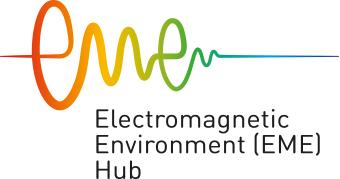
Robinson College
The National Electromagnetic Environment Hub (EME Hub) was pleased to announce the 2024 Mathematics Workshop in the Theory of Electromagnetic Activity, supported by the University of Leeds and hosted by the Newton Gateway. This in-person event ran from Wednesday 7th - Friday 8th February 2024 at Robinson College, Cambridge.
Participants
We welcomed mathematicians, physicists and engineers with diverse expertise including (but not limited to); signal processing, optimisation, operational research, imaging and vision, control theory, wave theory, machine learning, and electrical and communications engineering.
- Experts who would not normally be involved in electromagnetics were encouraged to join us.
- We welcomed Early Career Researchers. A small number of travel bursaries were available to support ECRs with funding restrictions.
Programme
Please see the link for the programme.
Registration
Registration for this event is now closed.
Background
Freedom of operation in the electromagnetic environment (EME) is crucial to future civilian and military activities, and yet is increasingly challenging as the environment becomes both more congested (by growth in demand), and more contested (by increased disruptive / covert capability). Continual innovation is crucial to maintain such freedoms, and this 3-day residential workshop aims to bring experts from diverse fields to share knowledge and address key challenges in electromagnetic activities as part of the wider EME Hub programme of work, and to spur new avenues of research, pilot studies and networking activities across the spectrum.
Aims and Objectives
This 3-day workshop aimed to give participants the opportunity to engage with five signposted challenges in Electromagnetic Activities, constructed by leading UK mathematicians.
Efficient automated decision-making
Rapid decision-making by automated units is highly important for enhancing operational effectiveness, adaptability, and initiative. By leveraging real-time observations and feedback, these units can navigate dynamic and unpredictable environments and respond to emerging disruption, even in environments where communications are complex. If automation is based upon an Observe-Orient-Decide-Act (OODA) loop, what are the control measures, and which are most critical? What amount of (correct) information is required to bring about sufficient control?
Playing games with uncertainty
In circumstances where the rules, rewards, and the set of possible actions are known to two opponents, Game Theory explores all the possible outcomes and allows the players to take rational decisions. Here, however, we consider the case in which the players begin with imperfect information about rewards or available actions, and in which rewards for actions may become clearer during progression of the game. We explore a game theoretical framework incorporating a stochastic element for reward and/or actions. Is this a useful framework for capturing/exploiting "irrational" players who do not initially seem to act to increase their overall reward?
Reliable and robust semantic communications
Semantic communication systems offer advantages over standard methods in terms of precision, contextual understanding, interoperability and efficient information retrieval. However, the impact of noise and/or adversarial actions is not well understood, and can lead to information loss, semantic ambiguity, and miscommunication. However, maintaining a high signal-to-noise ratio and implementing effective feedback mechanisms might limit their applicability in contested EMEs. How can a semantic noise robust communication system be implemented? What can machine learning techniques, such as adversarial training, offer?
Limits in realising EM deception
Claude Shannon provides a mathematical framework for measuring information and communication. Applying information theory to EM deception provides a rigorous framework for evaluating the impact of deceptive techniques on the information transmitted through the electromagnetic spectrum. Knowledge of the codebook used to create code words and the transmitted code word is ideal for developing an effective deception strategy. What is the optimal deception strategy given no such knowledge? What are the limits of creating a deception in this case?
Automated scheduling in an uncertain environment
Autonomous systems can perform multiple functions with set quality. A standard scheduling problem is to provide a collective of assets with a list of tasks with known rewards and expenditures. Here, we consider that each task is not a definite case, nor is the relationship between effort expended and reward. Can a task assignment and scheduling framework allow an asset to decide that moving on to the next task is more beneficial? Does the desired framework for this assessment change when it is done entirely autonomously at the edge or following a central assessment? Does this change when central assessment may be delayed or only received when the asset can communicate to a central base?



